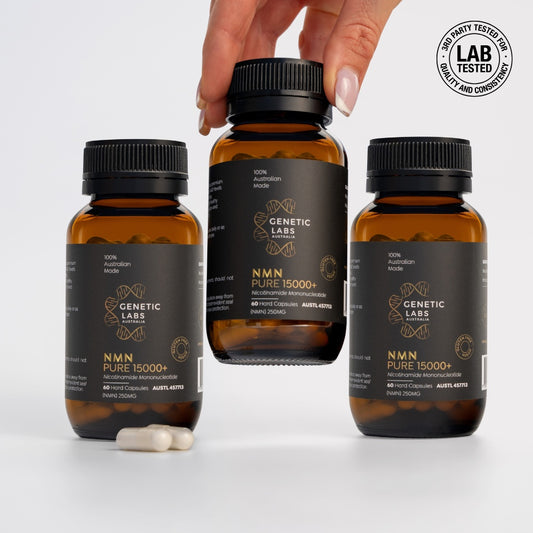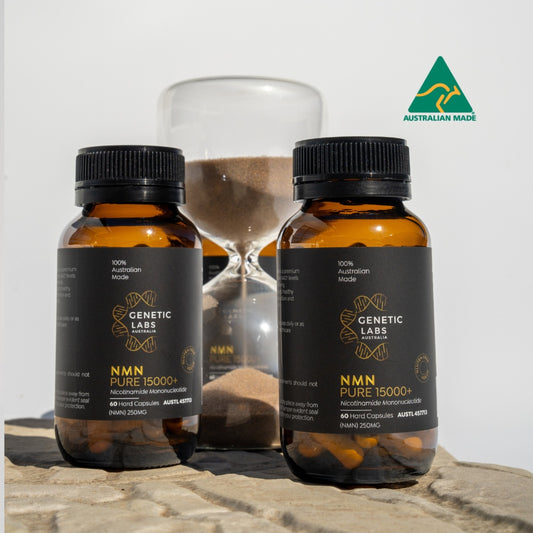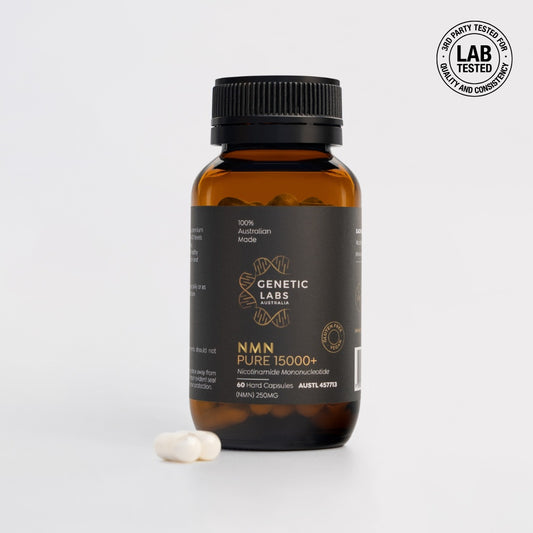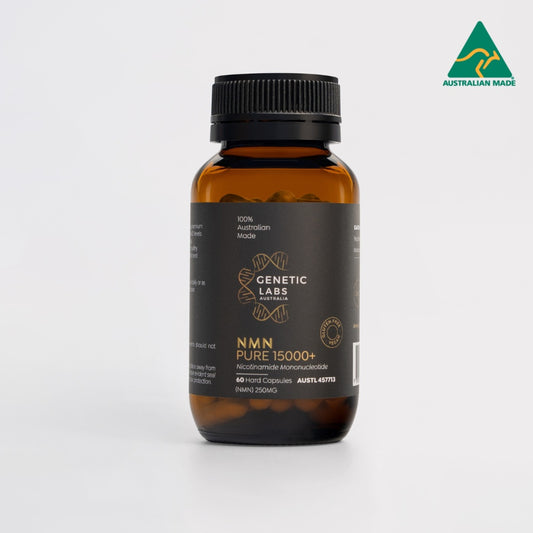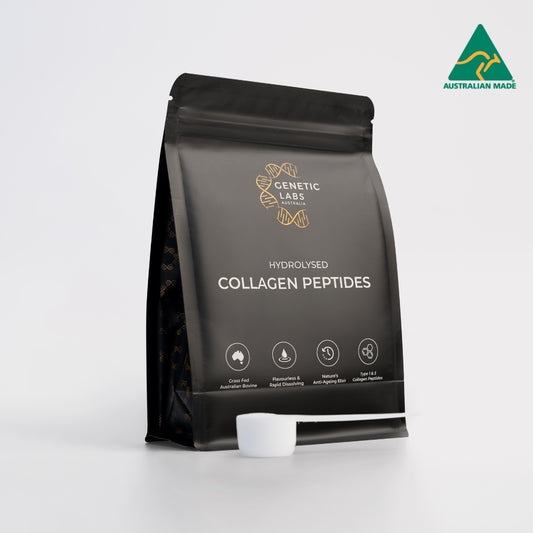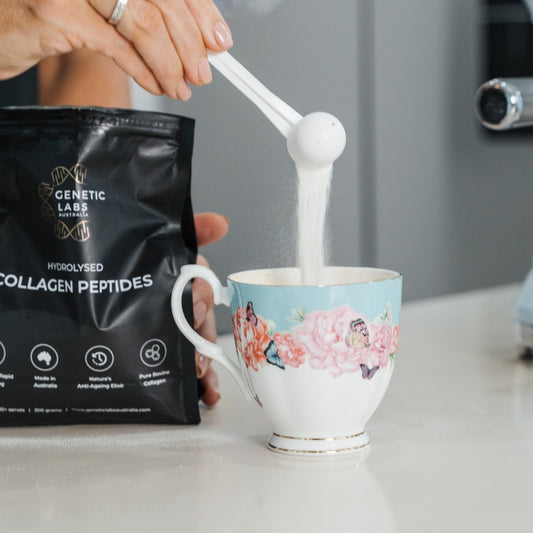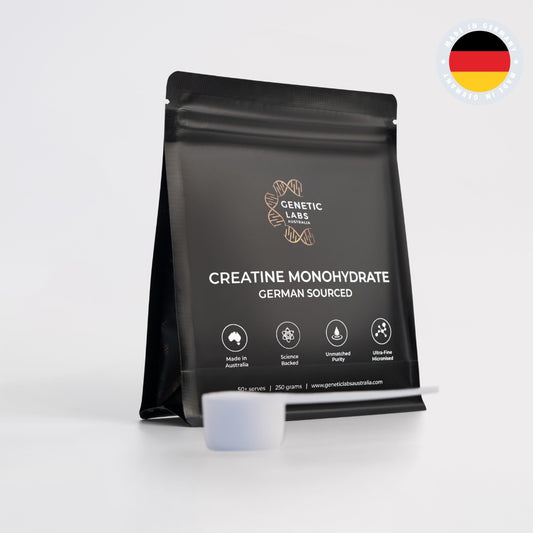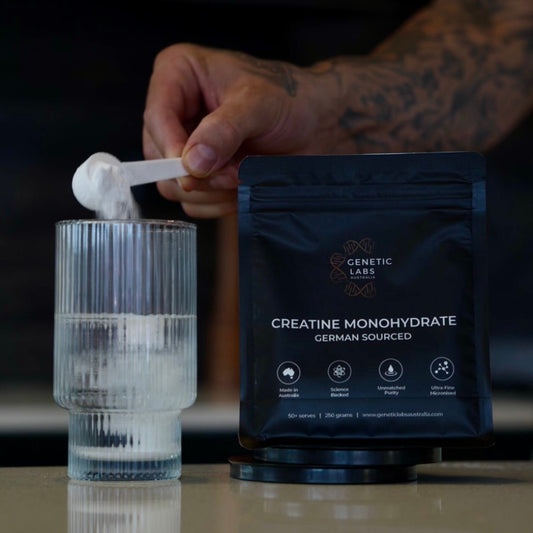14 Key Biomarkers of Ageing: How to Measure Longevity
What if you could measure how well you're ageing—beyond just the number on your birthday cake? While chronological age is fixed, biological age reveals how well your body is functioning at a cellular and systemic level. This is where biomarkers of ageing come into play.
An expert consensus study published in PubMed, identified 14 key biomarkers that provide critical insights into ageing. These biomarkers span physiological, inflammatory, functional, and epigenetic domains, offering measurable ways to track longevity and optimise healthspan.
What Are Biomarkers?
Biomarkers help quantify biological ageing, guiding interventions like diet, exercise, supplements, and therapies. They act as signposts, showing how your body responds to lifestyle changes aimed at extending longevity. The goal? To not just live longer but to live healthier, more vibrant years.
The 14 Key Biomarkers of Ageing
Physiological Biomarkers: The Body’s Internal Dashboard
-
Insulin-like Growth Factor 1 (IGF-1)
A hormone essential for cell growth, metabolism, and muscle maintenance. While IGF-1 supports recovery and tissue repair, high levels are linked to increased cancer risk. Striking the right balance is key. -
Growth-Differentiating Factor-15 (GDF-15)
A stress-responsive cytokine that rises with age. Elevated levels are associated with mitochondrial dysfunction, inflammation, and chronic diseases. It’s an emerging marker for metabolic health and longevity.
Inflammatory Biomarkers: The ‘Inflammaging’ Connection
-
High Sensitivity C-Reactive Protein (hs-CRP)
A marker of systemic inflammation, which plays a central role in ageing and diseases like cardiovascular conditions. Lower hs-CRP levels are linked to better long-term health. -
Interleukin-6 (IL-6)
A pro-inflammatory cytokine that increases with age, linked to frailty, immune dysfunction, and age-related diseases. Reducing IL-6 through lifestyle interventions can slow ageing.
Functional Biomarkers: How Well You Move and Think
-
Muscle Mass & Muscle Strength
Declining muscle mass (sarcopenia) and strength are major predictors of frailty and mortality. Strength training and adequate protein intake can help maintain these crucial markers. -
Hand Grip Strength
A surprisingly powerful indicator of overall health. Lower grip strength correlates with higher mortality risk, cognitive decline, and chronic diseases. -
Timed-Up-and-Go (TUG) Test
Assesses mobility and balance. Longer completion times signal increased fall risk and functional decline—key issues as we age. -
Gait Speed
A simple measure of how fast you walk. Slower gait speed is linked to cognitive decline, frailty, and higher mortality risk. -
Standing Balance Test
Tests neuromuscular coordination. Poor balance predicts higher risks of falls, fractures, and disability. -
Frailty Index
A composite score that includes various health deficits (e.g., weakness, fatigue, slow walking speed) to assess overall frailty. Lower scores = better resilience. -
Cognitive Health (Montreal Cognitive Assessment)
Evaluates memory, attention, and processing speed. Cognitive decline is a hallmark of ageing, but early interventions can preserve brain health. -
Blood Pressure
A critical marker for cardiovascular health. High blood pressure accelerates vascular ageing, increasing the risk of heart disease, stroke, and cognitive decline.
Epigenetic Biomarkers: The Future of Ageing Science
-
DNA Methylation/Epigenetic Clocks
Measures changes in gene expression over time. Epigenetic clocks are among the most accurate tools for estimating biological age, predicting lifespan, and assessing disease risk. -
Mitochondrial DNA Copy Number
Reflects mitochondrial health and function. Lower copy numbers are associated with ageing-related diseases, fatigue, and metabolic decline.
Why These Biomarkers Matter
Tracking these biomarkers empowers you to take control of your health. They enable early detection of potential health risks, allowing you to address issues before symptoms arise. This proactive approach is key to preventing chronic diseases and maintaining long-term vitality.
By personalising health strategies—tailoring your diet, exercise, and supplementation based on your unique biological markers—you can achieve more effective and targeted results.
Moreover, regularly measuring these biomarkers helps you evaluate the effectiveness of longevity interventions like fasting, exercise, and supplements such as NMN. This continuous feedback loop allows you to refine your health strategies and make data-driven decisions that support optimal ageing.
How to Measure These Biomarkers
Many of these biomarkers can be measured through simple methods, offering insights into your health and longevity. Blood tests track key markers like IGF-1, GDF-15, hs-CRP, IL-6, and blood pressure. Regular check-ups help monitor changes and assess the impact of lifestyle changes. Physical function tests, like grip strength, gait speed, and the Timed-Up-and-Go (TUG) test, provide quick insights into mobility and strength. Cognitive assessments, such as the Montreal Cognitive Assessment (MoCA), help detect early signs of cognitive decline.
Epigenetic tests estimate biological age by analysing DNA methylation, while wearable devices track heart rate, activity, and sleep for real-time health insights.
The Future of Ageing Research
This expert-driven consensus marks a new era in longevity science. Future research will explore how combinations of these biomarkers can offer the clearest picture of biological ageing.
Imagine being able to measure how well your anti-ageing efforts are working—whether it’s through fasting, exercise, or advanced supplements like NMN, Resveratrol, and Berberine.
Take Control of Your Ageing Journey
The science is clear: ageing is not just about the years you live, but how well you live them. With these biomarkers, you can track your biological age, adjust your lifestyle, and potentially extend your healthspan.

